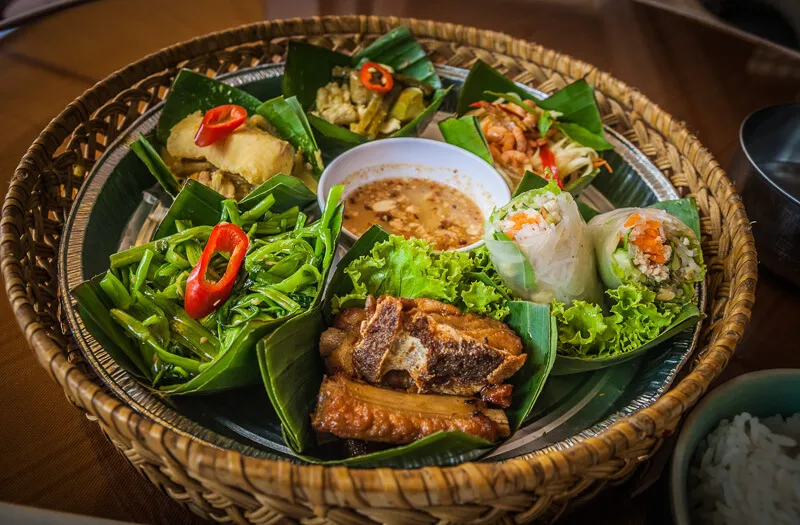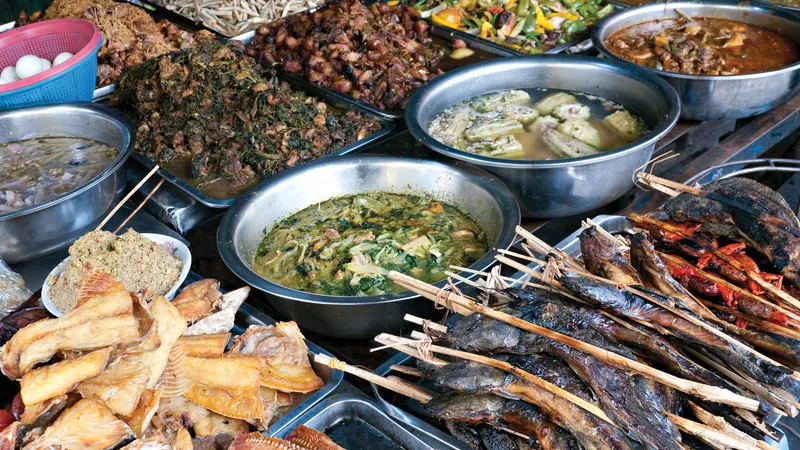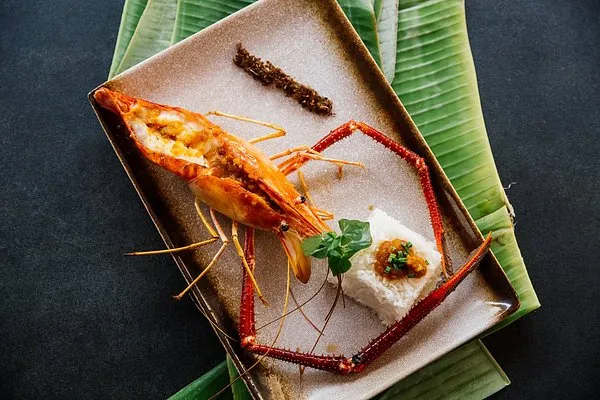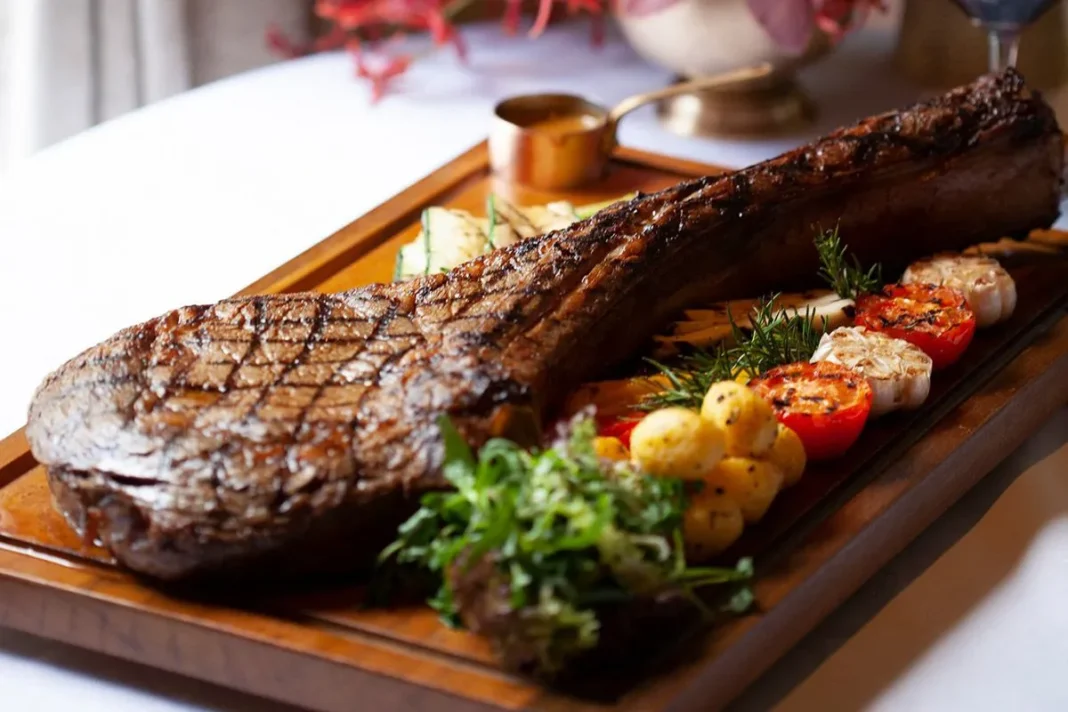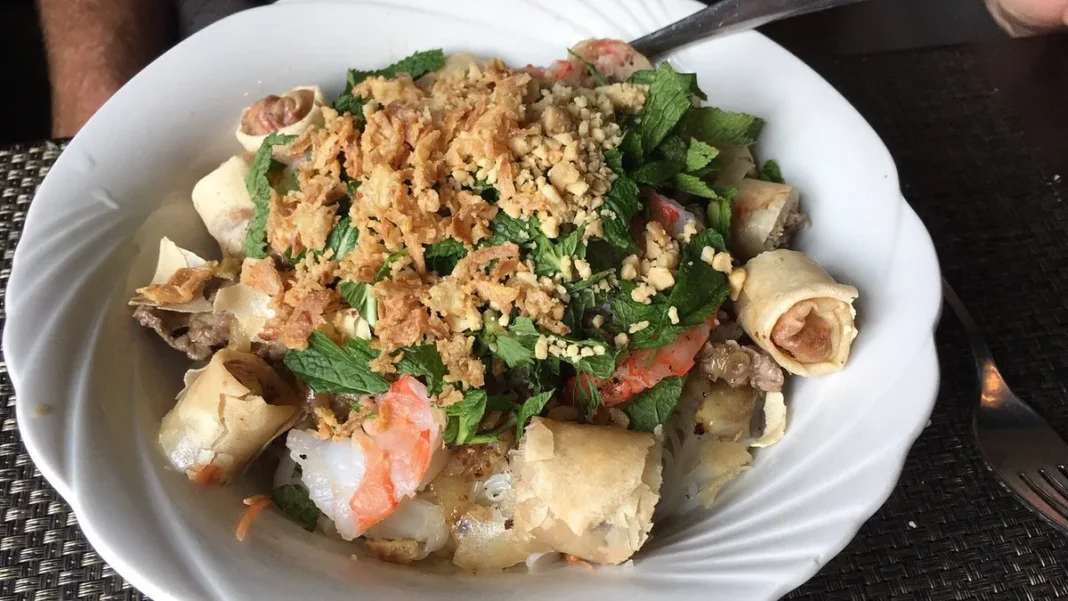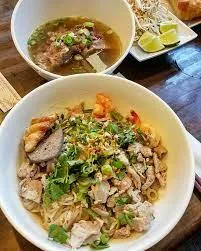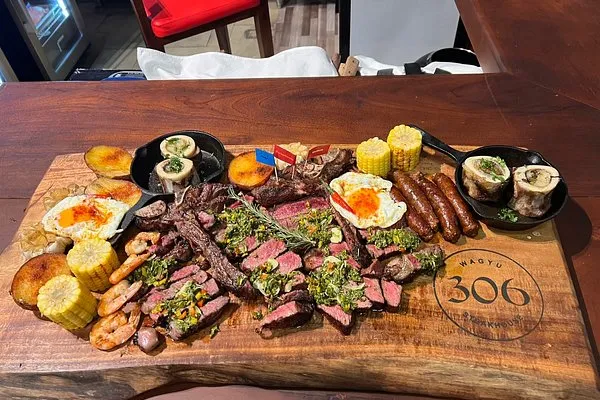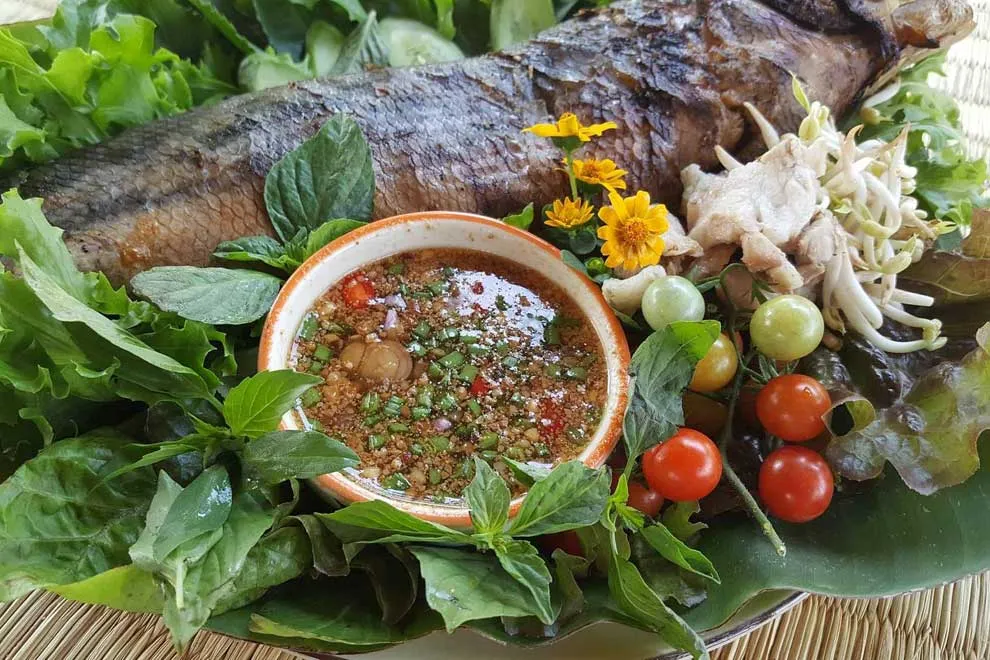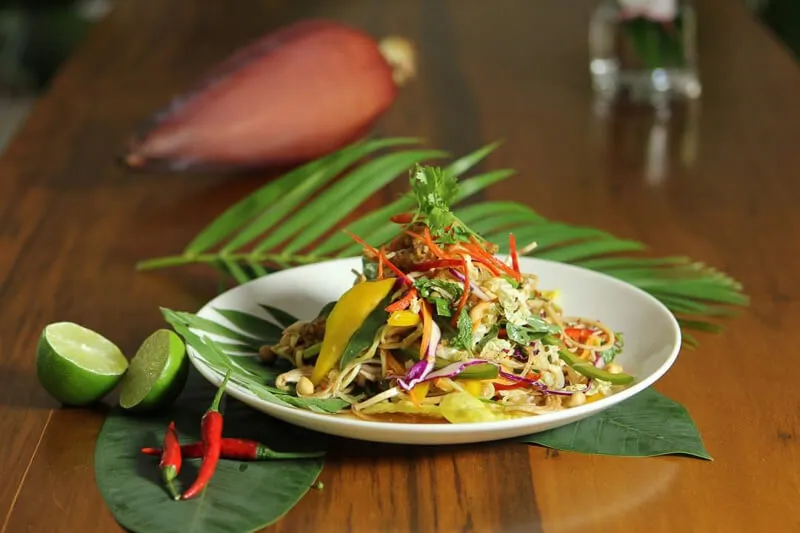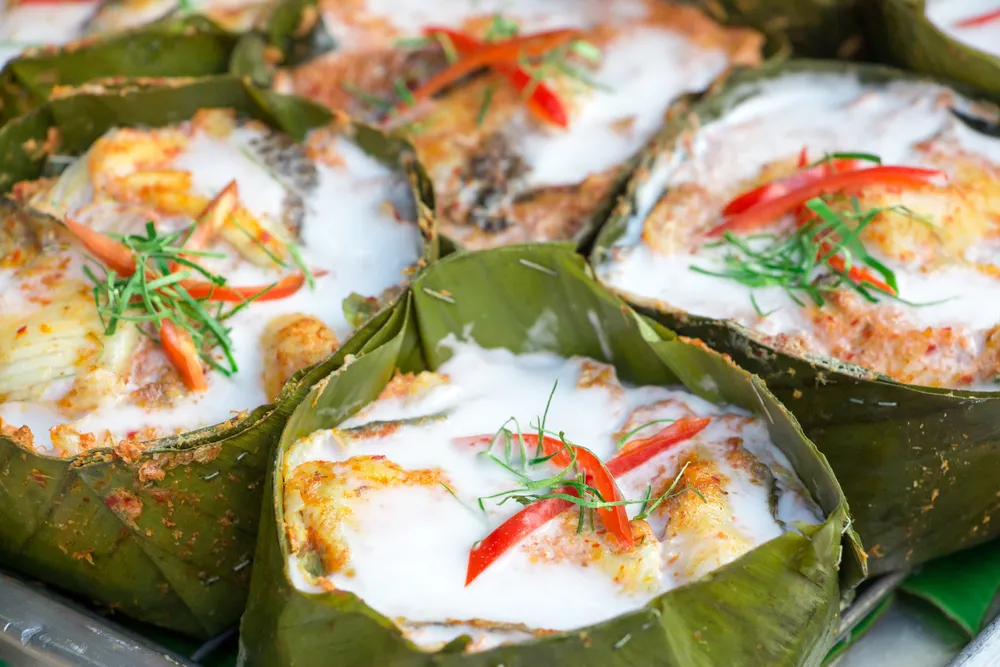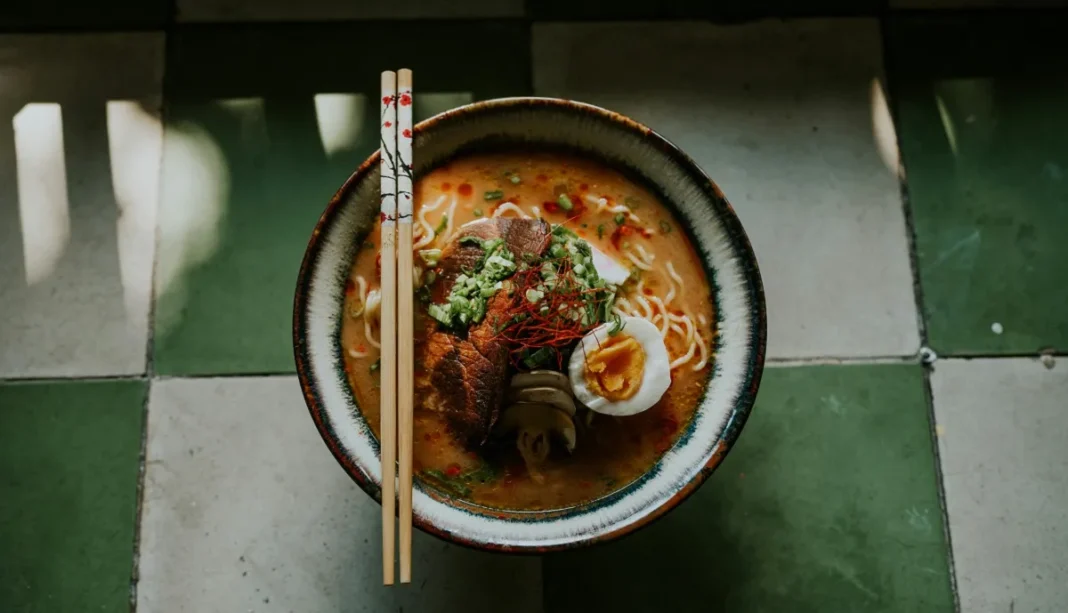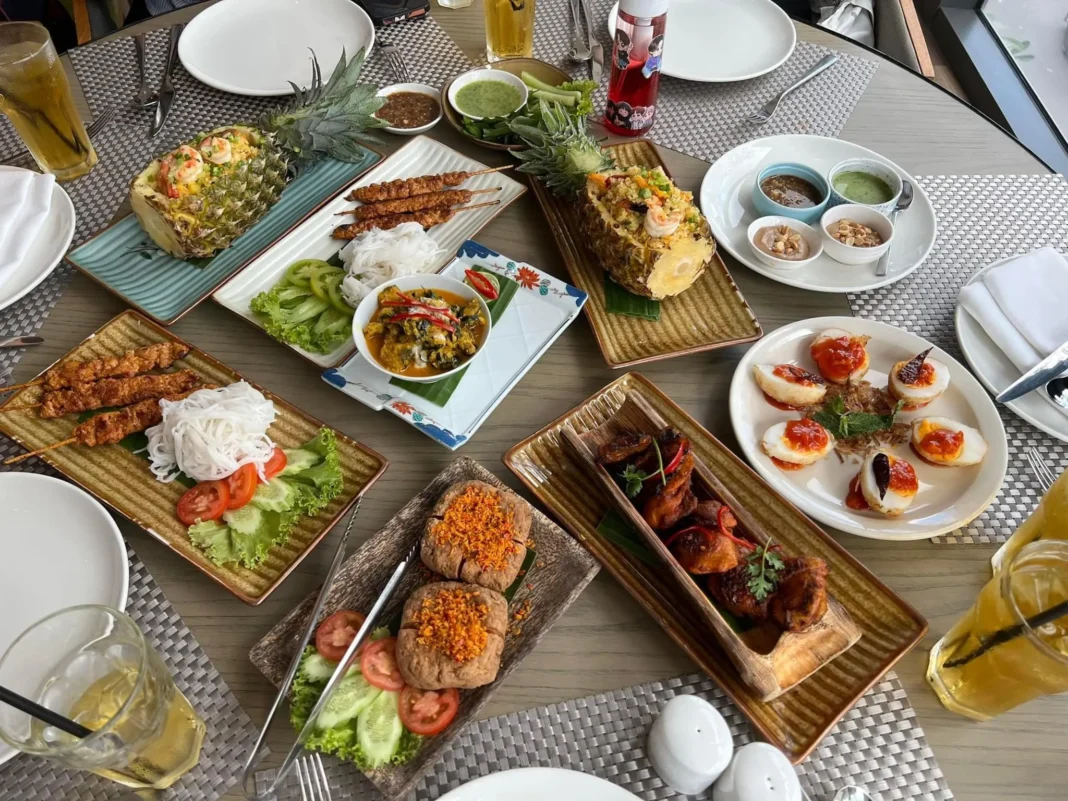Phnom Penh, the vibrant capital of Cambodia, is a food lover’s paradise. The city’s cuisine reflects its rich cultural heritage, blending Khmer traditions with influences from neighboring countries. From bustling street markets to elegant riverside restaurants, Phnom Penh offers a diverse range of flavors that will delight your taste buds. Let’s dive into the must-try dishes, best dining spots, and tips for enjoying the local food scene. Experiencing the local cuisine: Phnom Penh is truly a treat.
Must-Try Dishes in Phnom Penh
When visiting Phnom Penh, you simply cannot miss sampling its iconic dishes. Fish amok, a creamy coconut curry steamed in banana leaves, is a national favorite. Another standout is nom banh chok, a traditional Khmer noodle dish often served with fresh herbs and a tangy fish-based gravy. For a unique snack, try bai sach chrouk (grilled pork with rice), a popular breakfast dish. Additionally, don’t forget to indulge in kralan, a sticky rice cake cooked in bamboo, which is both sweet and savory. Indeed, the local cuisine of Phnom Penh offers countless delights.
Where to Eat: Street Food vs. Fine Dining
Phnom Penh’s food scene caters to all budgets and preferences. For an authentic experience, head to the Russian Market or Street 240 Night Market, where you’ll find an array of street food stalls offering everything from grilled meats to fresh spring rolls. On the other hand, if you’re looking for a more upscale dining experience, visit Malis Restaurant or Topaz, which serve refined Khmer cuisine in elegant settings. Whether you’re grabbing a quick bite or enjoying a leisurely meal, the variety of local cuisine in Phnom Penh will not disappoint.
The Role of Fresh Ingredients in Khmer Cuisine
Khmer cuisine relies heavily on fresh, locally sourced ingredients. Herbs like lemongrass, kaffir lime leaves, and mint are staples in many dishes. Moreover, the use of fermented fish sauce, known as prahok, adds a distinctive umami flavor to Cambodian food. Freshwater fish from the Mekong River and tropical fruits like mango and dragon fruit also play a significant role in the local diet. This emphasis on freshness ensures that every dish is bursting with flavor. Discovering local cuisine in Phnom Penh gives you a true taste of its culture.
Tips for Enjoying Phnom Penh’s Food Scene
To make the most of your culinary adventure, keep a few tips in mind. First, always carry cash, as many street vendors and small eateries don’t accept cards. Second, don’t shy away from trying unfamiliar dishes—Cambodian cuisine is full of surprises. Finally, stay hydrated and consider carrying hand sanitizer, as street food adventures can get messy. By following these tips, you’ll be able to fully immerse yourself in Phnom Penh’s vibrant food culture. Enjoying the local cuisine: Phnom Penh style is a memorable experience.
Conclusion
Phnom Penh’s local cuisine is a true reflection of Cambodia’s rich history and culture. From its flavorful street food to its refined dining options, the city offers a culinary experience like no other. Whether you’re savoring a bowl of nom banh chok or enjoying a gourmet meal by the riverside, Phnom Penh promises to leave you with unforgettable memories—and a satisfied appetite.


